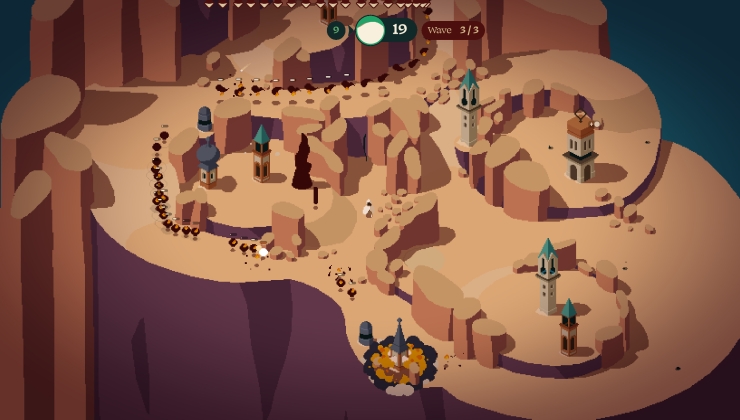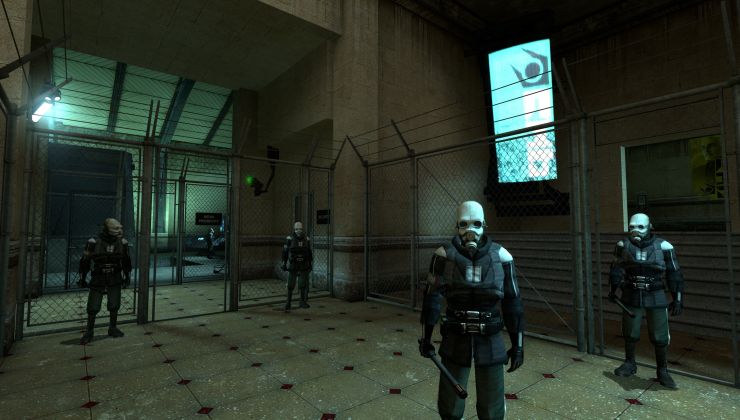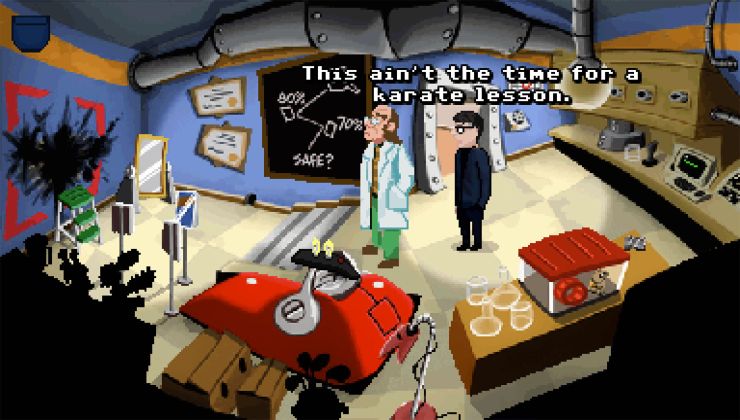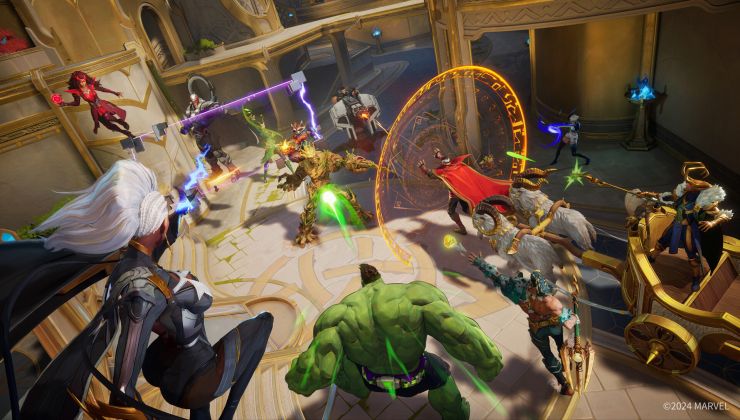As you might have heard by now, Canonical has made the decision to drop 32bit support from Ubuntu 19.10 onwards.
Writing on the mailing list, as well as this post on Ubuntu's Community Hub, Canonical gave a reminder that the decision isn't coming without warning. It was proposed last year and it was followed up with another post detailing a final decision to be made in the middle of 2019. So here we are, the decision seems to have been made.
The problem isn't hardware, as likely around 99% of people nowadays have a 64bit capable computer. Going by our own statistics, from what 2,254 users told us only 4 are using a 32bit Linux distribution. The issue then, is mainly software and libraries needed to actually run 32bit applications. This is where it sounds like there's going to be plenty of teething issues, with a number of people not too happy about the decision.
Steam, for example, is one such application along with plenty of 32bit games that will likely never get updated, although Canonical did say they're "in discussions" with Valve about it. There's also GOG, Humble Store and itch.io which all provide a number of direct-download 32bit games, which do not supply the required 32bit libraries to run. It doesn't sound like they have been given any thought (at least they haven't been mentioned).
Another of the major problems being Wine, with a discussion now happening on their mailing list. The discussion doesn't seem to be too positive, with developer Henri Verbeet even saying "I think not building packages for Ubuntu 19.10 would be the only practical option.", although Andrew Eikum's idea of using the Steam Runtime could be an interesting way around it.
What are your thoughts?
Last edited by Schattenspiegel on 21 Jun 2019 at 12:36 am UTC
Dropping 32 bit altogether in one go is a bit dumb ...
They should work with Valve in maintaining the few libs that were used by our games in the past ...
Flatpak a 32-bit library runtime and redirect traditional apps to it? What do other distros do for 32-bit lib support for games, just build their own packages? Using something like flatpak instead so 32-bit libraries wouldn't be locked into any particular distro would be great if you could make it easy for apps to utilize it (symlinks to the flatpak libs provided by a native package or by the flatpak w/ expanded permissions perhaps?).
Distros commonly use multiarch approach: https://wiki.debian.org/Multiarch/HOWTO
Less flexible and more limited idea of the same sort is called multilib. For such distros, there is no reason to use flaptak for 32-bit packages. So unless everyone will start dropping x86_32 multiarch, it should fine.
Last edited by Shmerl on 21 Jun 2019 at 1:40 am UTC
While this means we will not provide 32-bit builds of new upstream versions
of libraries, there are a number of ways that 32-bit applications can
continue to be made available to users of later Ubuntu releases, as detailed
in [4]. We will be working to polish the 32-bit support story over the
course of the 19.10 development cycle. To follow the evolution of this
support, you can participate in the discourse thread at [5].
Don't panic.
Don't panic.
Be calm, pick a better distro ;) Seriously, their proposed solutions are far from optimal.
Isn't it already mostly in Debian proper? Besides maybe the plymouth theme / wallpapers.Valve could up their game and offer a Steamos-Desktop Edition. It's already Debian based and includes a Gnome DE... Both hands on the steering wheel.
Or they can just open source their UI and add it to Debian proper ;)
I'm a huge supporter of Debian as a desktop / server, whatever.
It really goes like this, use stable with backports (namely kernel / nvidia driver, if you have such hardware, etc.) with the debian-multimedia repo, and you're pretty much set. Then you can wait about a year into stable, then switch to testing, since their release cycles seem to be about every 2 years. Just note that testing gets a bit unstable right after a release, and switch to stable at that point so the couple months of all the new crap coming from experimental and unstable don't break your system.
Coming from someone who has used it since the late 90s :)
Just note that testing gets a bit unstable right after a release, and switch to stable at that point so the couple months of all the new crap coming from experimental and unstable don't break your system.
Coming from someone who has used it since the late 90s :)
Debian tried to address this issue. Remember this proposal? https://lwn.net/Articles/550032/
It got better, but Debian testing can be sometimes rough and needs some understanding how to handle breakage if it happens. But that's in general not uncommon for any rolling distro, and rolling distro users learn how to deal with it and how to roll back breaking changes if they slip through.
Last edited by Shmerl on 21 Jun 2019 at 2:04 am UTC
Here's my thoughts on the actual change;Don't panic.
Be calm, pick a better distro ;) Seriously, their proposed solutions are far from optimal.
They are spending no extra development to get the 32bit packages on their 64bit system, since Debian does all the work, and they just fork / rebuild the packages.
They are doing this only to try to promote their own Snap package management, because no one really wants to use it, and more and more projects are moving to flatpak, or just releasing AppImages (I know Cura does this, I do wish the maintainer of the debian package would update it...)
Granted, it's my understanding that snap is friendlier to commercial packages, vs flatpak is more for running newer / sandboxed open source software. I personally stay away from snap, because it seems about as clean as random android app stores.
Isn't it already mostly in Debian proper? Besides maybe the plymouth theme / wallpapers.Valve could up their game and offer a Steamos-Desktop Edition. It's already Debian based and includes a Gnome DE... Both hands on the steering wheel.
Or they can just open source their UI and add it to Debian proper ;)
I'm a huge supporter of Debian as a desktop / server, whatever.
It really goes like this, use stable with backports (namely kernel / nvidia driver, if you have such hardware, etc.) with the debian-multimedia repo, and you're pretty much set. Then you can wait about a year into stable, then switch to testing, since their release cycles seem to be about every 2 years. Just note that testing gets a bit unstable right after a release, and switch to stable at that point so the couple months of all the new crap coming from experimental and unstable don't break your system.
Coming from someone who has used it since the late 90s :)
Thing is the desktop sessionn is separate from the BPM session that automatically launches . (the BPM mode uses it's own compositor , and the X server is slightly differently configured ) .
So yeah it is mostly Debian based but thing is they customized it a looot .
As far as I am concerned I guess I'll stick with 18.04 for a while once I upgrade to it (and that already brings some problems Devil Daggers being one of them )
They are doing this only to try to promote their own Snap package management, because no one really wants to use it, and more and more projects are moving to flatpak, or just releasing AppImages (I know Cura does this, I do wish the maintainer of the debian package would update it...)
Granted, it's my understanding that snap is friendlier to commercial packages, vs flatpak is more for running newer / sandboxed open source software. I personally stay away from snap, because it seems about as clean as random android app stores.
I think Flatpak overall has wider backing, and is viewed is a lightweight sandboxing solution. When it comes to such bundling, I usually see Flatpak discussed, almost never Snap. And I doubt their Snap push will help prevent massive migration of gamers from Ubuntu. Canonical really didn't handle this well.
Last edited by Shmerl on 21 Jun 2019 at 2:18 am UTC
in the mean time, you can run windows 1.0 applications on windows 10...
what is the point of the system being open source, if we cant even run the apps we want? where is the freedom on it?
yes i can use other distro, but what if all the major ones does the same (the ones which are base for the rest) i'm not planning to support my self.
windows never looked so good.
Last edited by elmapul on 21 Jun 2019 at 2:37 am UTC
Is quite a stupid move in the end that could negatively affect new Linux users...
Yup, everyone adopted flatpak except Ubuntu. This is going to end up like Mir, Unity, Upstart, etc. Where they'll bend to the popular vote after a release or two. After they lose all their users to other distributions.They are doing this only to try to promote their own Snap package management, because no one really wants to use it, and more and more projects are moving to flatpak, or just releasing AppImages (I know Cura does this, I do wish the maintainer of the debian package would update it...)
Granted, it's my understanding that snap is friendlier to commercial packages, vs flatpak is more for running newer / sandboxed open source software. I personally stay away from snap, because it seems about as clean as random android app stores.
I think Flatpak overall has wider backing, and is viewed is a lightweight sandboxing solution. When it comes to such bundling, I usually see Flatpak discussed, almost never Snap. And I doubt their Snap push will help prevent massive migration of gamers from Ubuntu. Canonical really didn't handle this well.
The thing I just don't get... they base off Debian, and I don't see Debian making any moves to drop support for 32bit libraries, hell they still support i386 distributions when most have dropped that.
https://release.debian.org/buster/arch_qualify.html
Hell there is still a Debian fork for m68k.
" The issue then, is mainly software and libraries needed to actually run 32bit applications. This is where it sounds like there's going to be plenty of teething issues, with a number of people not too happy about the decision.'Ha, that's a STRONG maybe for running older Windows stuff in Windows 10. I mean I've seen many older applications run better with Wine than in Windows 10.
in the mean time, you can run windows 1.0 applications on windows 10...
what is the point of the system being open source, if we cant even run the apps we want? where is the freedom on it?
yes i can use other distro, but what if all the major ones does the same (the ones which are base for the rest) i'm not planning to support my self.
windows never looked so good.
But the point here is, imagine if Windows 10 dropped 32bit support. I'd guess roughly 80% of things would stop working entirely. In the Windows world 64bit native applications were never that wide spread.
I wouldn't move to an Ubuntu-based derivative like Mint, though, because the decisions that affect Ubuntu will affect those derivatives.
I have Mint installed on a netbook :><::><:
if they wanted they could provide a third party repo on opensuse OBS, it's really easy. I'm pretty sure if Ubuntu drops all 32bit libs all together someone will stand up and maintain a 3rd party repo.
straight from the mailing list:
"The immediate question for me is whether to even bother trying to package Wine for Ubuntu 19.10 and up. The suggestion from Ubuntu is to use the 32 bit libraries from 18.04, which will be supported until 2023. It's theoretically possible for me to build the 32 bit side on the OBS using the libraries from 18.04, but that would lead to a mismatch in library versions the 32 and 64 bit sides were built against. Apt requires the i386 and amd64 versions of packages match or it will refuse to install them, so unless that changes, users of 19.10 and up will be unable to install the 32 bit libraries they need to run Wine, unless they downgrade a significant part of their system to the 18.04 versions."
Ubuntu more and more is reminding me of Apple or Microsoft, in that they have one way of doing things, and you're forced to do it their way. (And because they're the big market share, other smaller distros are forced to go that route, as well.) Slackware gets a bum rap, but it doesn't stand in your way at all. Want to use systemd? You can put it in, if you so choose and are handy at rebuilding things. Want to use Wayland or Gnome? There are packages for it. Don't want to use pulseaudio? OK. PAM? We don't talk about PAM. ;)
And their "solutions" are laughable, especially considering that Ubuntu is supposedly focused on user friendliness. Linux for human beings, the newbie distro, it just works... except a lot of things don't work at all anymore. And what their suggest? GPU pass through.
As for games, developers generally targeted Ubuntu specifically. What happens when Ubuntu of all things stops working? How the heck can we ask for developers to support Linux when the "biggest" and "default" distro suddenly breaks all games? Valve were at the point where they ambitiously wanted every game on Steam to work on Linux; now games with official Linux support, as well as default Wine, will stop working on Ubuntu. I'm not sure they could cause more damage if they tried. The only saving grace is that, as FOSS, no single company can control Linux entirely.
I'm still hoping that they revert this change on 20.04. Maybe this was just a test run, or a gimmick to make people panic and start publishing 64 bit. But well, my next distro certainly won't be Ubuntu-based.
I'm a huge supporter of Debian as a desktop / server, whatever.Sounds like a good system if you're still in the reformat-every-year-or-two mindset. That was really an XP era thing that I find pretty annoying these days. I don't like major upgrades, thus the move to a rolling release years ago. Theoretically never have to reinstall? "Sign me up," is what I thought.
It really goes like this, use stable with backports (namely kernel / nvidia driver, if you have such hardware, etc.) with the debian-multimedia repo, and you're pretty much set. Then you can wait about a year into stable, then switch to testing, since their release cycles seem to be about every 2 years. Just note that testing gets a bit unstable right after a release, and switch to stable at that point so the couple months of all the new crap coming from experimental and unstable don't break your system.
Coming from someone who has used it since the late 90s :)
Not saying you're doing it wrong, -- it's your system -- just commenting my preference.












 How to set, change and reset your SteamOS / Steam Deck desktop sudo password
How to set, change and reset your SteamOS / Steam Deck desktop sudo password How to set up Decky Loader on Steam Deck / SteamOS for easy plugins
How to set up Decky Loader on Steam Deck / SteamOS for easy plugins
See more from me